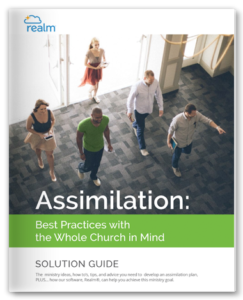Generation Z is now one of the most predominant generations in America. They are also very unique compared to past generations and are vital for the future of the church. Their unique qualities mean we will need new and equally unique strategies to reach these individuals. To know how to best reach “Gen Z,” we must first understand who they are. There are many different ways this generation can be defined. For this article, we will be talking about individuals born between the years 1997- 2012. However, alternative definitions have this group born from 2005-2025 (Strauss Howe Generational Theory).
Strauss Howe Generational Theory has a generational cycle lasting 80-90 years (a lifetime). Each cycle has four turnings, each of which occurs roughly every 20 years, with every cycle ending in a crisis “The Fourth Turning.” Examples of these in the past were the revolutionary war, civil war, great depression/ww2, and more recently, the financial crisis and potentially even the global Covid-19 pandemic. Each generation has different yet predictable behaviors during each of these “turnings.” There are four different Archetypes that generations fall into Hero, Artist, Prophet, or Nomad. Archetypes are general collective personas of groups that are formed from similar experiences in their formative years. These experiences influence their behavior towards family, parenting, culture, values, risk, etc. Over time, these behavior trends repeat themselves and show up in new generations. Generation Z is known to be the “Artist” Archetype. With this generation being in their formative years and entering young adulthood during the most recent crisis, we can start to better understand them and what makes them who they are.
Gen Z tends to be more conservative than their Millennial counterparts. Pew research data shows they tend to engage in less risky traditional teenage behavior (drinking, drugs, sex). That is not to say they do not have their concerns. This generation is the most likely to report their mental health as being poor. Depression, bullying, and anxiety are all major issues reported by this generation. This is in part due to the events that formed them and how they were raised. In lockstep with the classic upbringing of “Artist” generations, they are regarded as the most overly protected and sensitive generation in American history. This, combined with the increase in technology usage, leads this generation to be less likely to leave home and engage socially, which further fuels the mental health crisis many in this generation face. Generational behaviors are not set in stone and tend to change as the generation ages. We will most likely see these generations look to grow and deepen their social relationships as they age (perhaps virtually).
More than any other generation, Z is looking for what the church is doing for others more so than what the church can do for them. This is particularly true when it comes to ministries that deal with mental health. This group is looking for more than just a weekly sermon. They want to personally get to know the church and the pastor (most often through social media platforms). They want to be a part of a “movement.” Casting a large vision for the church and inviting them to participate will help them get over the feeling that they are just helping you grow your platform in a world where they are taught to view themselves as a brand online.
Generation Z is most heavily concentrated on the social media platform TikTok (a platform they can avoid encountering their parents on). A diverse church is a must for this generation and something they are actively seeking. The biggest and most important issue on this generation’s mind is one we discussed earlier, and that is mental health. The church that can champion mental health issues and share the peace and rest found in Christ Jesus will do well in reaching and serving this generation.
For more information on Assimulating any generation into your church, download ASSIMILATION BEST PRACTICES WITH THE WHOLE CHURCH IN MIND. Or visit our Church Growth website for more information on generational differences and other blogs.

Andrew Esparza is the founder of Kingdom Analytics. This company has served over 300+ organizations doing good globally by helping better connect them to their community, congregation, or customers using advanced demography research. He also has experience in the church world working for the largest high school ministry in the country at North Point Community Church. Andrew graduated from Arizona State University with degrees in Design Management and Tourism Development and is CITI certified in Social and Behavioral Research.




